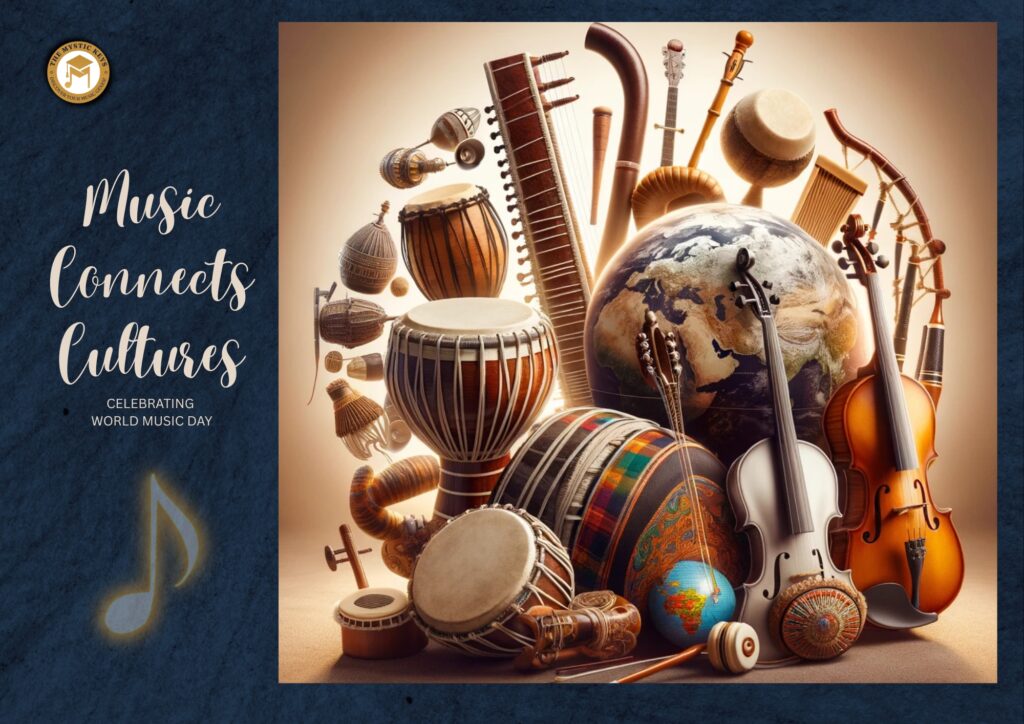How Music Connects Cultures | Celebrating World Music Day
Music is more than sound — it’s a universal language that crosses borders, breaks barriers, and brings people together. From ancient traditions to modern genres, music connects cultures in powerful ways. It has long served as a bridge between diverse communities, weaving a global story through rhythm, melody, and shared emotion. Its true strength lies in uniting hearts and minds beyond language, race, or nationality.
That’s why World Music Day, celebrated every year on June 21st, holds such meaning. It’s a special day to recognize music’s timeless role in promoting harmony, understanding, and peace across the world. But how exactly does music bring cultures closer? And why is this connection so important today? Let’s explore the emotional, social, and cultural ways music brings us together — and why World Music Day is a celebration we all can share.
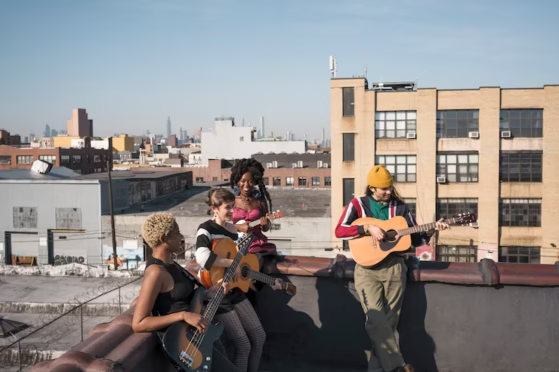
The Universal Language of Music
One of the most remarkable aspects of music is its universality — a key reason why music connects cultures so powerfully. Unlike spoken languages that must be learned and can often exclude those unfamiliar with them, music speaks to everyone. Regardless of origin, background, or education, people across the world can relate to its melodies, rhythms, and harmonies. These elements evoke emotion, tell stories, and express ideas in ways that touch something deeply human. This universal appeal makes music a bridge across cultural divides, allowing us to share, understand, and celebrate one another’s unique identities.
Emotional resonance: Whether it’s a joyful folk song, a haunting traditional chant, or an upbeat dance rhythm, music can evoke deep feelings that are instantly understood. A smile, a tear, or a dance is a response that requires no translation.
Shared experiences: Musical events—concerts, festivals, street performances—invite people to come together, share moments of joy, reflection, and celebration. These experiences create communal bonds that surpass cultural differences.
This shared emotional and experiential quality of music creates a natural bridge for cross-cultural communication. Because music speaks to our feelings and instincts, it reaches people where words cannot. As a result, we begin to appreciate and embrace other cultures — even if we don’t share the same language, traditions, or background. Music becomes the common ground where curiosity turns into understanding.
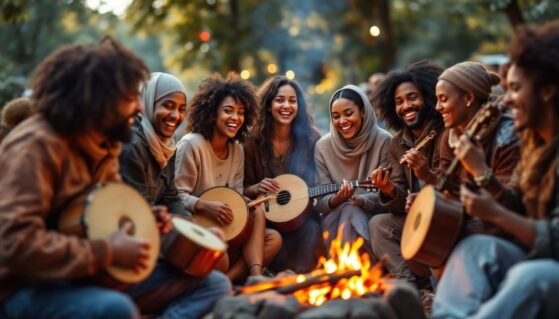
Music as a Cultural Identity and Expression
At the same time, music is deeply rooted in cultural identity. Every culture carries its own musical traditions, instruments, and styles — each telling a story of its history, values, and way of life. From the classical ragas of India to the rhythmic drumming of Africa and the passionate flamenco guitar of Spain, music reflects the very soul of a community. And yet, despite these differences, music connects cultures by allowing us to experience and appreciate the richness of one another’s heritage. Through this shared musical language, we not only preserve our identities but also build bridges of understanding and respect.
Preserving heritage: Music preserves and passes down traditions from generation to generation. It keeps alive languages, folklore, and rituals that might otherwise fade away.
Cultural pride and continuity: Performing and sharing traditional music strengthens a community’s pride and connects younger generations to their heritage.
When cultures share their music with others, it opens a window into their world. This sharing can inspire curiosity, respect, and a willingness to learn about people who might seem different on the surface.
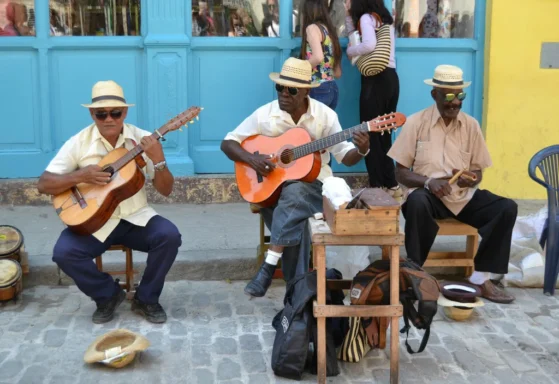
Fusion and Innovation | Music’s Role in Cultural Exchange
The history of music is not just about tradition — it’s also a story of fusion, exchange, and evolution. As people and cultures have interacted over centuries, so have their musical styles. This ongoing exchange has given rise to many of the world’s most beloved genres. In fact, some of today’s most popular music styles are the direct result of cross-cultural collaboration and influence:
Jazz: Born in the African-American communities of New Orleans, jazz draws from African rhythms, European harmonic structures, and Caribbean influences.
Reggae: A unique blend of African, Caribbean, and American musical styles.
World music: This genre itself is a celebration of blending traditional music from multiple cultures, creating new sounds that transcend borders.
This constant exchange and fusion show that music is a living, evolving cultural phenomenon. It demonstrates how cultures influence each other positively, creating shared innovations that celebrate diversity while fostering unity.
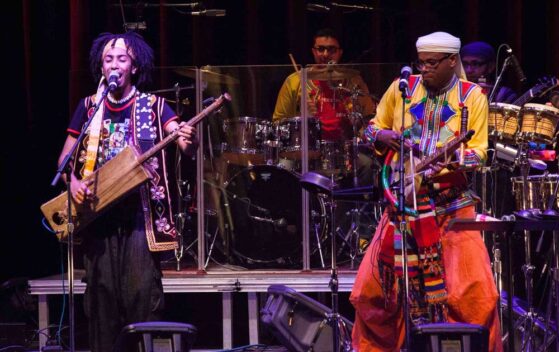
Music Bridging Social and Political Divides
In times of conflict and social upheaval, when words often fail to bridge divides, music steps in as a powerful force for peace and reconciliation. It becomes a voice for the voiceless, expressing what many feel but cannot say. Songs of protest, hope, and solidarity have not only inspired hearts but also mobilized entire movements, drawing global attention to causes that matter. Through melody and message, music continues to unite people in their shared pursuit of justice and healing.
Peace and protest songs: From Bob Dylan’s anthems to South Africa’s anti-apartheid music, music has given voice to the oppressed and built bridges between opposing groups.
Interfaith and intercultural harmony: Music events and collaborations can bring together people from different religions and ethnicities, promoting understanding and empathy.
By celebrating the commonality of human experience through music, societies can overcome prejudice and build bridges of trust.
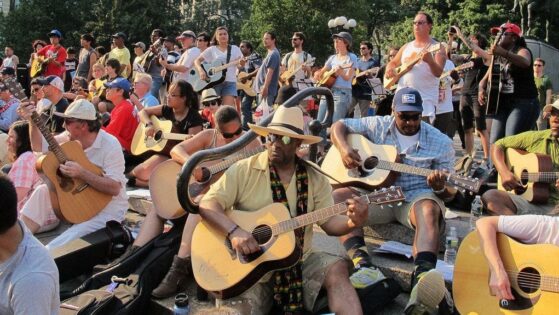
World Music Day | A Global Celebration
World Music Day (also known as Fête de la Musique), initiated in France in 1982, has grown into a global movement celebrated in over 120 countries. Held on the summer solstice, the day encourages musicians of all levels—professional and amateur—to perform in public spaces, making music accessible to everyone.
Democratizing music: Free concerts and performances break down barriers to enjoying music, encouraging participation and appreciation.
Cultural exchange: Festivals often feature a mix of traditional, classical, contemporary, and fusion music, showcasing the rich diversity of cultures.
Community engagement: World Music Day fosters a sense of global community, reminding us all that music is a gift that belongs to everyone.
For music lovers, this day is a chance to discover new sounds, celebrate their own musical heritage, and come together in joyous harmony.
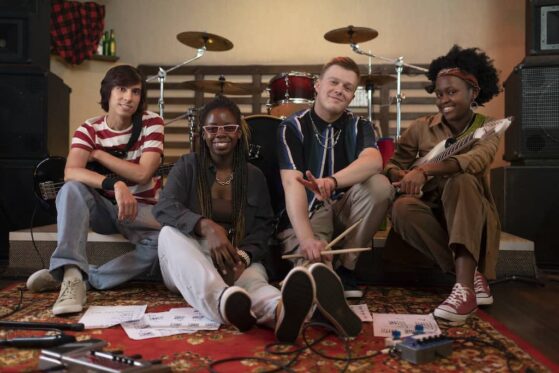
How You Can Participate in World Music Day
You don’t have to be a professional musician to take part in this vibrant celebration. Here are some ways you can connect with music and culture on World Music Day:
Attend a local concert or music festival featuring diverse genres.
Learn to play a song from another culture.
Share your own music or organize a community jam session.
Explore world music playlists online and discover new artists.
Support local musicians and cultural organizations.
Every note played or heard on this day contributes to a collective harmony that celebrates diversity and unity.
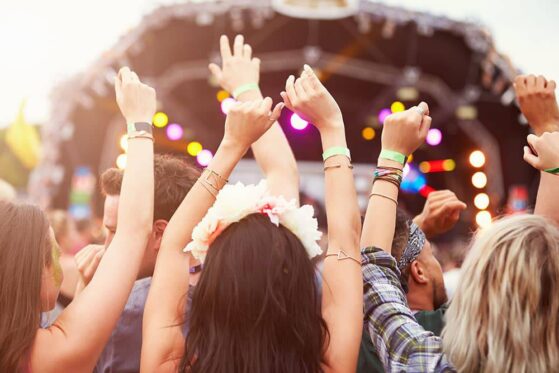
Conclusion | Embracing the Harmony of Humanity
Music’s ability to connect cultures is a testament to the beauty and richness of human diversity. It opens doors to empathy, understanding, and mutual respect. By celebrating World Music Day, we acknowledge that despite our differences, we all share the same rhythm of humanity.
Let us use music as a bridge — to learn from each other, celebrate our unique identities, and come together in a spirit of peace and joy. Platforms like The Mystic Keys embrace this very spirit, offering music education that brings people from different cultures together. After all, in the words of the great composer Leonard Bernstein, “Music can name the unnameable and communicate the unknowable.” On this World Music Day, let us listen, share, and celebrate the universal language that unites us all.


